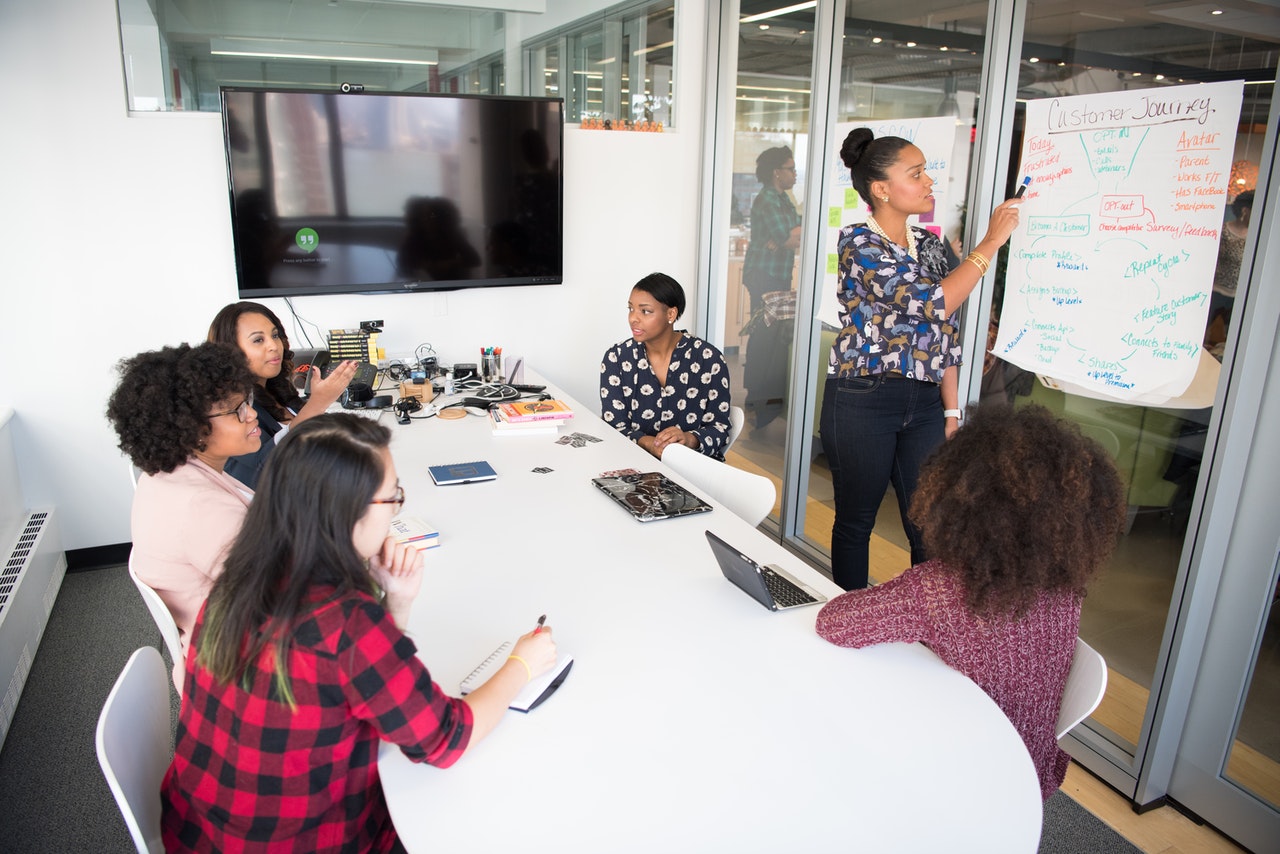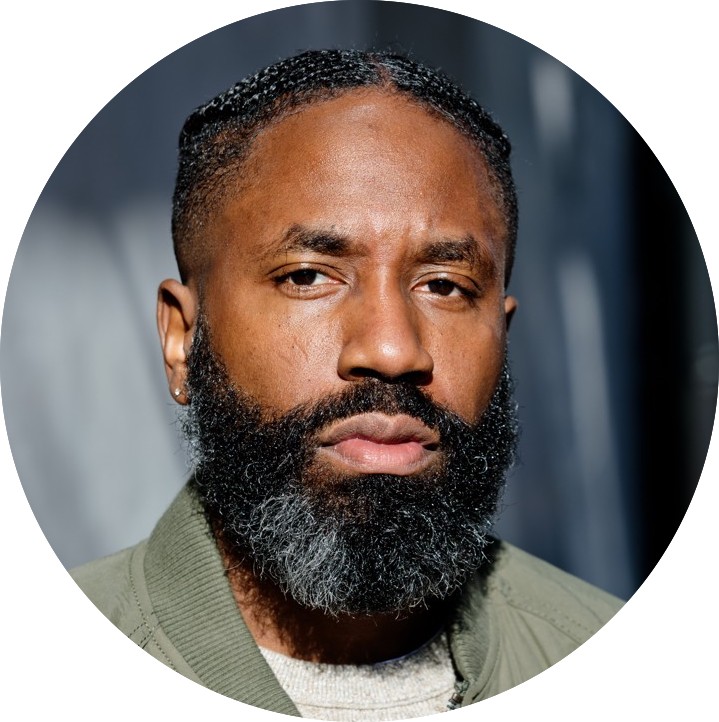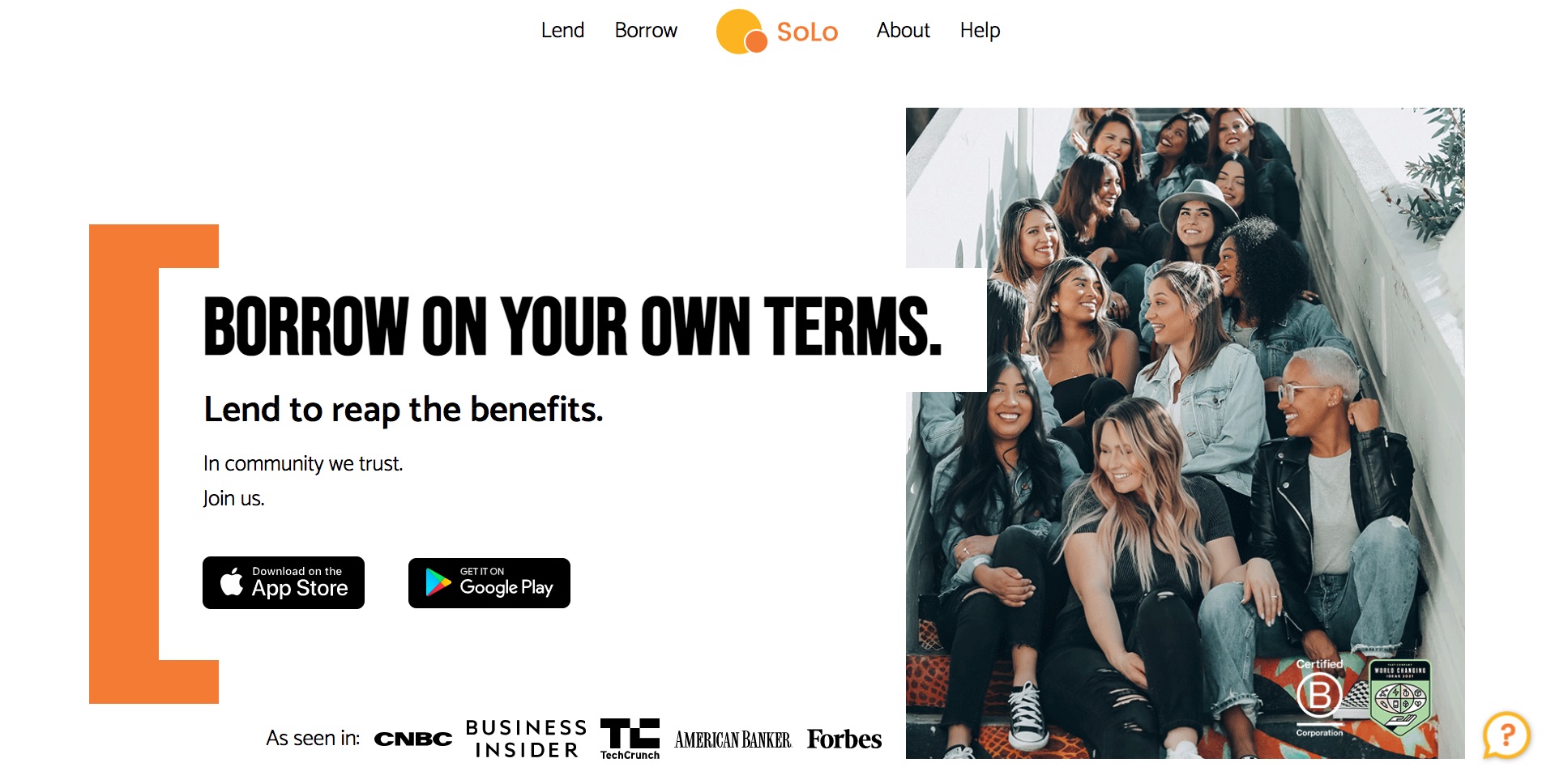
Finovate kicks off its African-American History Month commemoration with a conversation with Rodney Williams, co-founder of SoLo Funds. Along with company co-founder Travis Holoway, Williams was named to Cause Artist’s “40 Social Entrepreneurs to Watch for in 2022.”

SoLo Funds is a mobile lending platform that brings borrowers and lenders together for peer-to-peer microloans – with terms set by the borrower. Headquartered in Los Angeles, California, SoLo Funds has processed more than 150,000 loans and served more than 400,000 customers since 2018. The company serves as a viable, non-predatory option for the nearly 80% of Americans who live paycheck to paycheck.
Featured in Tech.co’s “Seven Tech Startups to Watch Out for in 2022”, SoLo Funds in December became the only African-American owned fintech to acquire B Corp certification. This designation, granted by global nonprofit network B Lab, is given to companies that achieve a balance between “purpose and profit.” SoLo Funds earned a 10 out of 10 for its impact business model and 4.1 out of 5 for customer stewardship. “By SoLo Funds certifying as a B Corporation, it has met the highest form of verification for its commitment to people and the planet,” B Lab U.S. and Canada Director of Equitable Growth Andy Fyfe said.
We caught up with Rodney Williams to discuss SoLo Funds and its mission to improve the lives of “responsible, yet largely ignored” underbanked individuals and their families.
What problem does SoLo Funds solve and who does it solve it for?
Rodney Williams: SoLo Funds is a solution for anyone who has ever had the need for emergency funds. The unfortunate reality is that more than 6 in 10 adult Americans can’t afford $1,000 for an emergency expense. That’s over 100 million people, and oftentimes, it is our most vulnerable communities who bear this burden. Situations like this are why payday lenders have become some of the most prevalent businesses in the U.S., outnumbering the number of McDonald’s restaurants by a factor of two.
SoLo Funds was created to provide a new opportunity for cash-strapped Americans. As a first-of-its-kind, on-demand marketplace, SoLo puts borrowers in control by allowing them to access emergency funds in an average of 30 minutes. They are entirely in charge of the terms of their loan, including how much to tip lenders and how much to donate to SoLo Funds’ operations – a portion of which now gets reintegrated to communities in need through SoLo Causes.
This is the first time a financial platform has offered borrowers a completely voluntary fee structure. We aim to become the leading financial technology company for underserved communities who have been anchored down and left without options for too long.
What in your background gave you the confidence to tackle this challenge?
Williams: The inspiration for SoLo Funds grew out of my own and my cofounder Travis Holoway’s personal experiences. There were times where our parents would have an electric bill due on a Friday, but wouldn’t get paid until Monday, so we would have our electricity shut off because we weren’t granted a grace period. Other times, our parents had to decide between paying the bills or paying to fix the tire on the car. Travis and I grew up nearly 400 miles away from each other, but the older I got, the more I realized that these experiences weren’t unique to me.
Communities share a lot of similar qualities, but never has anyone tried to scale a solution for them. This was the inspiration for SoLo Funds, and what gave us the drive to bring the intimate knowledge of our communities to the world of FinTech. What has ensued is a product and solution for everyone.

SoLo Funds recently became the only African-American owned fintech to acquire B Corp certification. What does this achievement mean for SoLo going forward?
Williams: This was a huge milestone for SoLo Funds in its development. B Corp certification represents a balance of profit and values and, as a company working to achieve a more inclusive world, this not only serves as validation that we are doing that, but it also serves as a model. Fintech is not just for corporate bottom lines; it can be a tool that can truly democratize and build generational wealth for people who have been disenfranchised for so long.
Tell us about your favorite feature of SoLo Funds platform/technology.
Williams: As I mentioned, SoLo Funds was born out of lived experiences. This is decades of knowledge poured into a platform that provides a new way for people to learn and better their lives. The most remarkable thing about SoLo Funds is that it bridges the knowledge gap between what people are told about how to manage finances, and what they really should be doing to put themselves in the best financial situation possible. Because borrowers can set their own terms for their loans, they have the power to choose what and when they’ll pay. And we’ve seen tip and donation numbers go down as borrowers progress on the platform and understand what it costs to obtain capital.
SoLo provides an opportunity for people to learn and better their lives. This is a tool that changes peoples’ lives and gives them the ability to do what they want to do. Skills are transferable. SoLo is experiential. Books only get you so far, and there is always risk. Making bad financial decisions is a part of life. If we don’t start to teach the power of financial literacy, people will fail to understand why it’s so important.
You recently announced a partnership with Habitat for Humanity and United Way. How did this partnership come about and what are its goals?
Williams: We launched SoLo Causes to build on our work to serve folks in need. For our corporate philanthropy, we wanted to choose partners that would go out and do good in the communities in which our users live. Our first non-profit partners, United Way and Habitat for Humanity, match our values and impact our users’ communities. The program is dedicated to reintegrating potential profits into the communities that need it most. SoLo has committed that by 2023, 100% of our donation revenue will be distributed to non-profits. Ultimately, the goal is to reinvent how the system works for people. Once someone who lives paycheck to paycheck can stop worrying about paying for their next utility bill or fixing a leak in their home, they can start to build their lives and their wealth.
As a founder, what do you think is the most important factor when it comes to building a strong team?
Williams: A strong team has to be able to complement each other through their strengths, weaknesses, backgrounds, and experiences. This is the key not only to building a strong team but, at SoLo, this also is the key to building a team that provides the best services to our users. We believe that in order to meet our users where they’re at, we have to understand their needs and how they operate. SoLo users come from diverse backgrounds – nearly 60 percent of them identify as a minority, 60 percent report being female, and 40 percent of borrowers are low-income. Too many companies have tried to put these people in a box, forcing top-down approaches that are really the same traditional financial services repackaged. If we don’t create a team that can identify with the lived experiences of these people, then we will ultimately fail as a company trying to help them.
What can we expect from SoLo Funds in 2022?
Williams: SoLo Funds will continue to build a mission-driven business. Our B Corp announcement and the launch of SoLo Causes have solidified our commitment to underserved communities, but it’s just the beginning of what we have to come. We are working on a series of new banking services which we will gradually roll-out. These are meant to offer users the ability to build and sustain credit where they were previously excluded in the traditional financial system. Additionally, we are excited to launch a global mission. The United States isn’t the only place where access to emergency funds is an issue. We plan to launch SoLo Funds in our first global market, increasing financial accessibility for millions.
Photo by Christina Morillo from Pexels